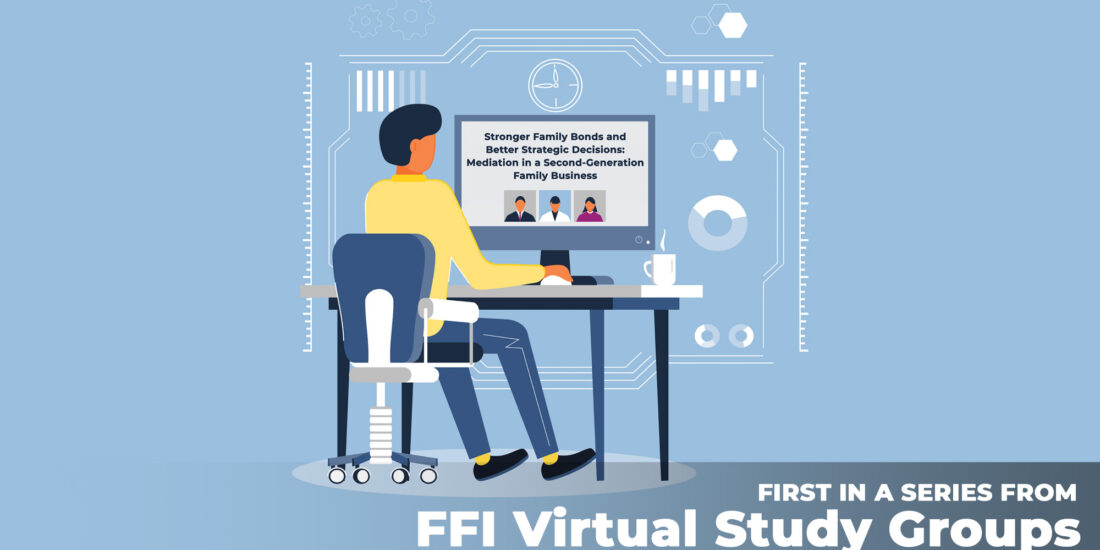A Journey of a Thousand Miles Begins with a Single Step: Learning from 100 year family enterprises

This issue is a précis of an August 2013 research paper by Dennis Jaffe entitled “Good Fortune: Building a Hundred Year Family Enterprise.” It includes a summary of some counterintuitive results as well as helpful suggestions for practitioners.
A Journey of a Thousand Miles Begins with a Single Step: Learning from 100 year family enterprises
Dennis T. Jaffe, Ph.D.
Business families often seek an advisor because they fear the prophesy “shirtsleeves to shirtsleeves” and are not sure what they want to do to prevent its becoming a reality. They want their family to be exceptional, but they fear their family resources will damage the family relationships and the futures of their heirs. In order to know how best to help them, my colleagues and I undertook a study of 38 large global enterprising families who had been successful over multiple generations. We called them “generative families.”
This inquiry led to several counter-intuitive discoveries that can inform the work of advisors.
- It is generally assumed that families develop governance, family councils, and other shared family activities because they want to make their family business more successful and profitable. The research showed otherwise. In fact, after a first generation success, the families in this study decided, in the second or third generation, that because of their success and the many resources available to them what was truly worth pursuing was to develop a great family, alongside their great business.
- A second insight is that by the third or fourth generation, a family enterprise that remains together builds two interconnected, but differentiated “pillars” of shared activity—one for the business (or multiple enterprises) and one for the family.
- Finally, the research traced the evolutionary pathway of a successful family over four or more generations and found that each generation, because of its structure, increasing numbers of people and business entities, faced a different series of challenges. But in each generation the family again faces the question—do we want to be together, and, if so, what for?
For advisors, several key insights arise from this research:
- Your family clients need to learn what other families have done in later generations to avoid seeing their situation primarily through the eyes of the current generation.
- Families need to learn—by reading, hearing and meeting—what other families are doing. Otherwise they tend to resist or avoid change and their views are limited by their own experience.
- The job of an advisor is to listen to the family, but not to fully accept its point of view. Advisors need to challenge their clients’ points of view, and gently but firmly lead them to see wider and broader possibilities.
- Advisors should also help the family to step back and look forward a generation, to develop a broader view of what they want to do. Then help them begin their journey with concrete and small steps, understanding that this work is not a one-step activity, but rather a process of development.
- Advisors can help a family anticipate change by involving as many people as possible, engaging members of all generations (even young adults in a third or fourth generation).
In the next year another 60 or more global families will be interviewed to extend this research to involve 100 100-year families.
The working paper referred to in this blog, Good Fortune: Building a Hundred Year Family Enterprise, can be downloaded here.
About the Contributor
 Dennis Jaffe is on the organizational systems faculty at Saybrook University and helps families who own a family business, or who share family investments, to manage the personal and organizational issues that lead to successful transfer of businesses, wealth, values, and legacies between generations. He is an FFI Fellow and 2006 recipient of the Richard Beckhard Award. Dennis is also a faculty member for FFI’s Global Education Network (GEN) and will be teaching at the October FFI 2013 conference in San Diego. Dennis can be reached at djaffe@saybrook.edu.
Dennis Jaffe is on the organizational systems faculty at Saybrook University and helps families who own a family business, or who share family investments, to manage the personal and organizational issues that lead to successful transfer of businesses, wealth, values, and legacies between generations. He is an FFI Fellow and 2006 recipient of the Richard Beckhard Award. Dennis is also a faculty member for FFI’s Global Education Network (GEN) and will be teaching at the October FFI 2013 conference in San Diego. Dennis can be reached at djaffe@saybrook.edu.
Stay tuned next week for another issue of The Practitioner.
Yours in Practice,
The Practitioner




